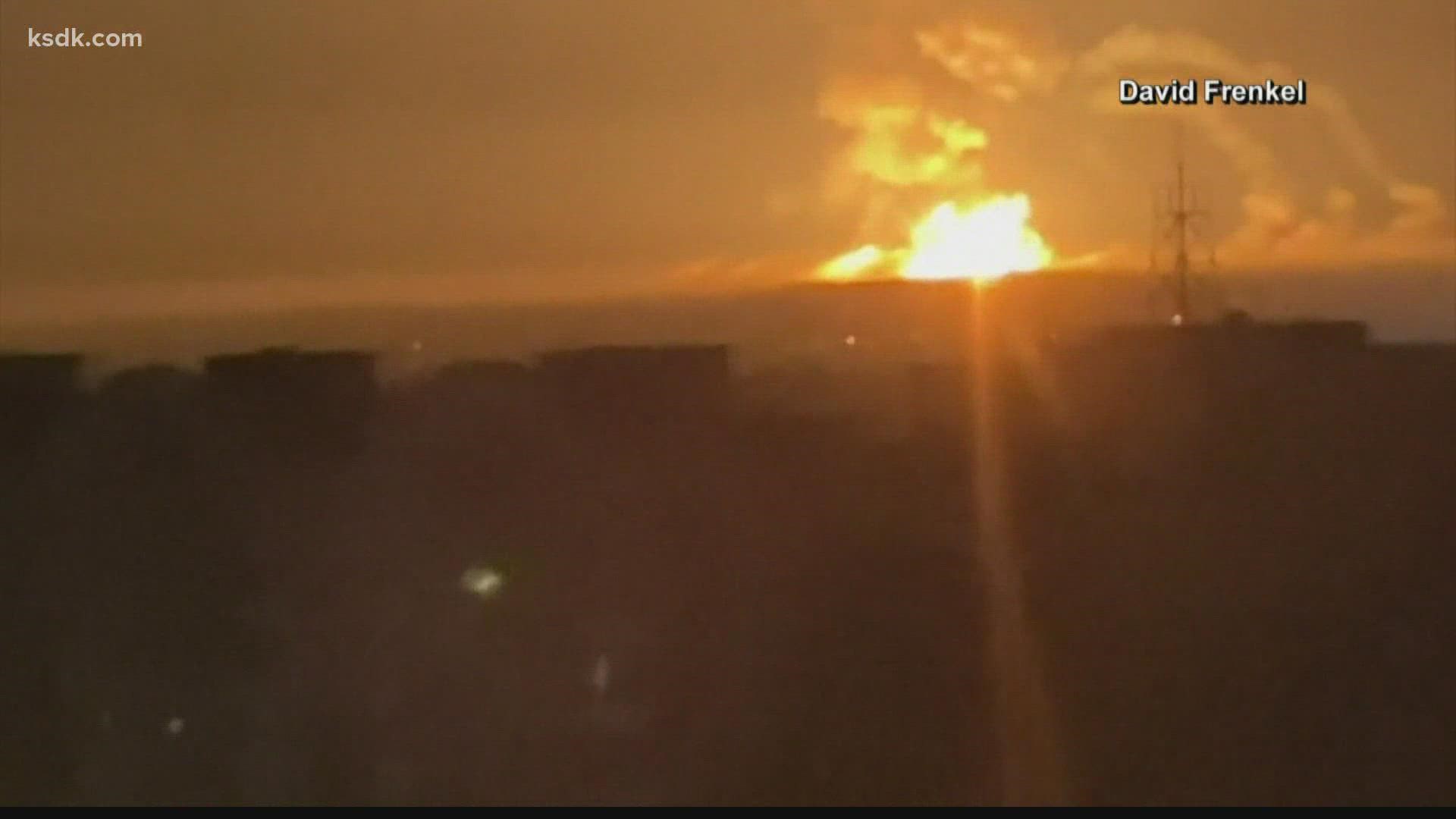ST. LOUIS — “I can't convey in words of what I'm feeling,” said Sophia Wilson Thursday afternoon via Zoom, with a picture of Kyiv set as her virtual background.
Wilson is an associate professor of political science at Southern Illinois University Edwardsville and former fellow and visiting scholar at the Harvard Ukrainian Research Institute. Ukraine isn’t just her area of expertise: it’s her homeland.
“I've been in contact with my family members who are all over Ukraine. Ukrainians seem to remain calm. There is understanding that truth is behind them, because this is an invasion, but there is a feeling of shock.”
Shock, but not surprise, since she said president Vladimir Putin sees the former Soviet country as a bad example for his people.
“In many ways, the story is quite simple, right? It's not complex. Ukraine's democracy is a threat to the existence of the Russian government as it sits today, and it lies and it creates fear among the Russian population, and then they set out for a destructive war,” she said. “Putin cannot stand a successful democratic Ukraine.”
Ukraine has been an independent nation since 1991, fighting off Russian influence and territorial grabs for much of the last three decades. Tensions have been escalating over the past several weeks, with a buildup of Russian troops on the border and Putin's declaration of independence for two Ukranian states before Wednesday night's televised address and subsequent attack on military outposts. All the while, most Ukranian people lived "business as usual," many hardened to the threats of Russian aggression. Its people still have many cultural and economic ties to Russia, but its government has grown increasingly close with the west.
"There was still hope, maybe Russians will understand. Maybe the Russians will listen to us," said Dr. Wilson. "And so there was continuous hope because of those ties."
Putin has long asserted if Ukraine joins NATO, it will be seen as a threat met with force. Though Ukraine has not joined the organization of western-aligned nations, Webster University International Relations Professor Dani Belo explains it's too close for Russia's comfort.
“Even though it is not a member, we still see greater cooperation between Ukraine and NATO: everything from arms for provision to Ukraine, as well as personnel training the Ukrainian army, of course, in an event of a Russian incursion,” he said. “So from Russia's perspective, the window of opportunity to act was getting smaller.”
Wilson calls it misguided planning on Putin’s part.
“NATO is stronger than Russia. If they would have wanted to do anything, they didn't need Ukrainian membership,” she said. “That [threat] is completely fabricated. But Putin's message was very effective. And in fact, just a couple of years ago, over 60 percent of Russians believed that the U.S. can invade them any day.”
But the other nations, Belo explains, don’t provide the strategic advantage of Ukraine.
“One of the key arguments brought by the Kremlin is that if NATO's air installations, missile installations, are brought closer to Moscow, then the travel time between those installations, if they are used against targets in Russia proper, is very low,” he explained. “So Russia would not be able to counter any possible attacks if NATO's assets are moved closer. So the distance matters, and this is something that the Kremlin has articulated time and time again, not just over the past several months, but over the past several years.”
Now, with Ukrainian citizens being urged to take up arms in their own self-defense and fleeing for safety, the impact is on all of Europe.
“We shouldn't call it a Ukraine crisis, as I often hear it being referred to because it's a very misleading term that aids Russian aggression,” said Wilson. “Essentially, we need to call it what it is. It's Russian invasion of Ukraine.”
Dr. Wilson said one thing that didn't change overnight for her loved ones in Ukraine is their belief in democracy.
“They know they did everything they could to offer the best future for their children through making sure they have a democratic country. And that is my idealistic hope that helps me keep going,” she said. “That's what we tell each other, what Ukrainians tell each other, is that the good will prevail.”

